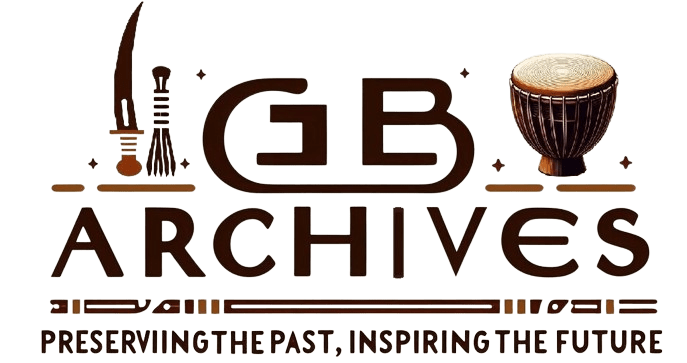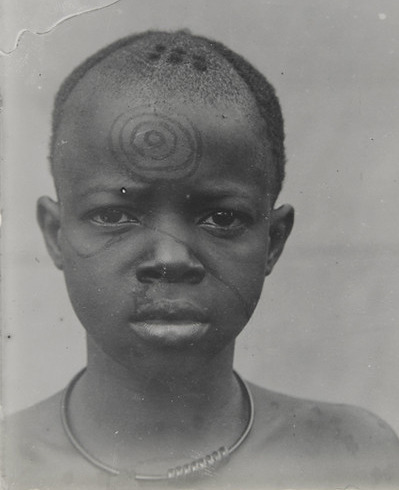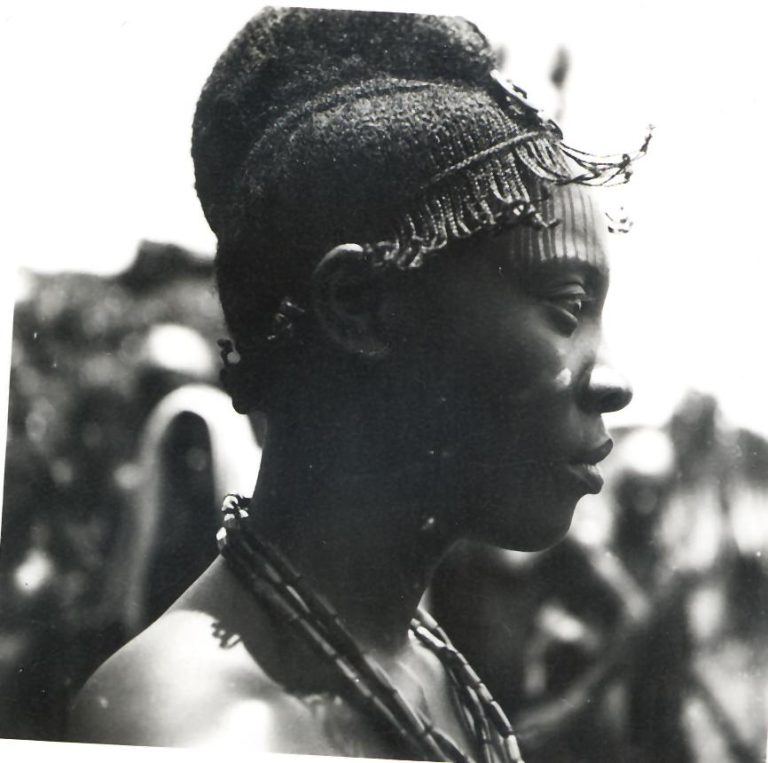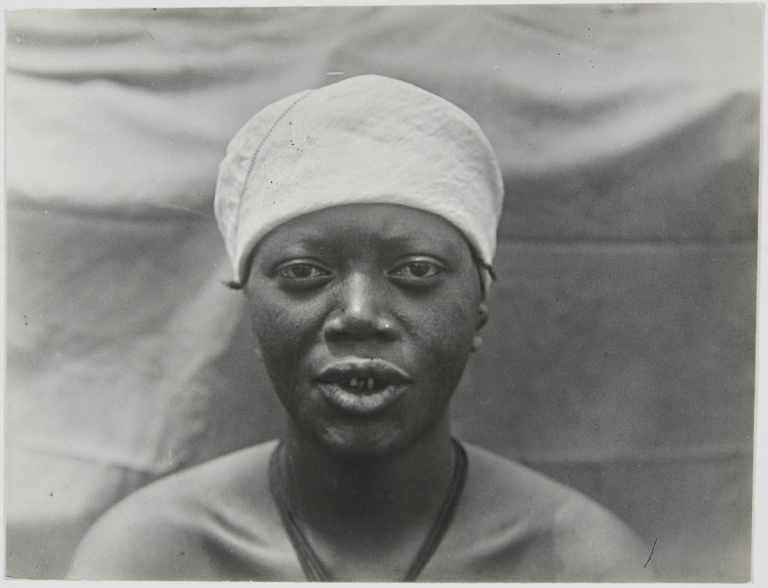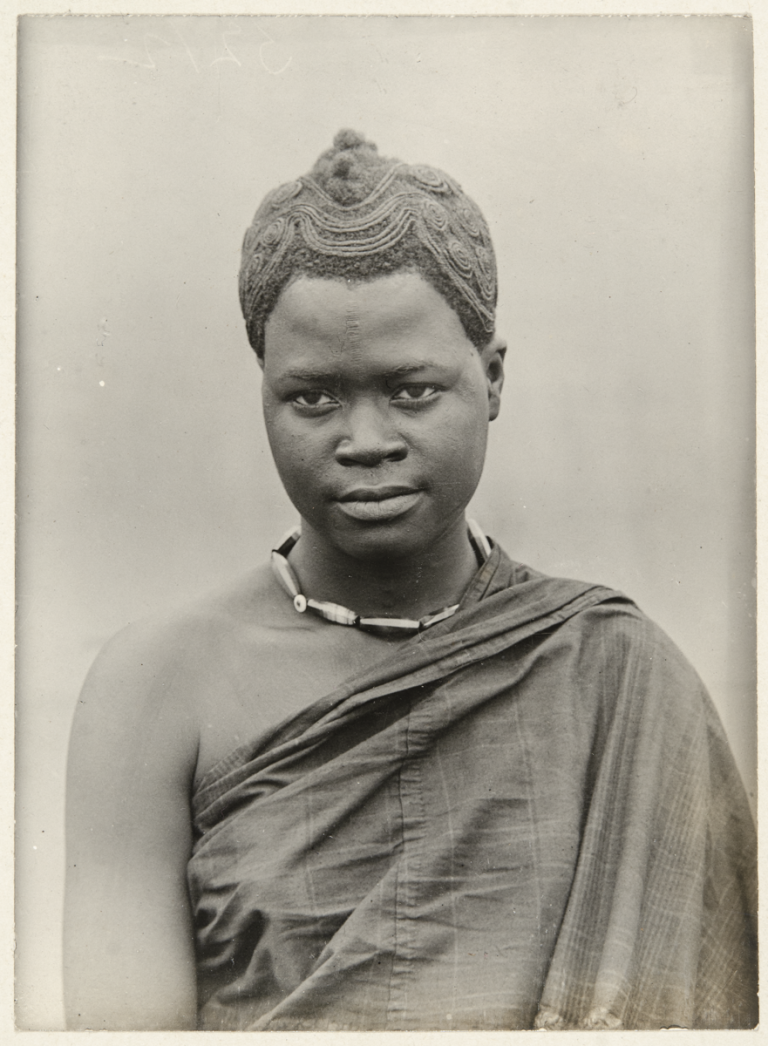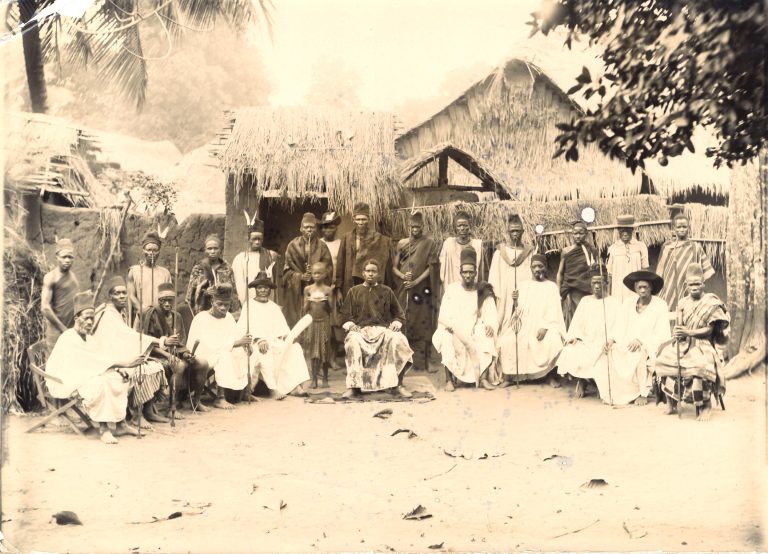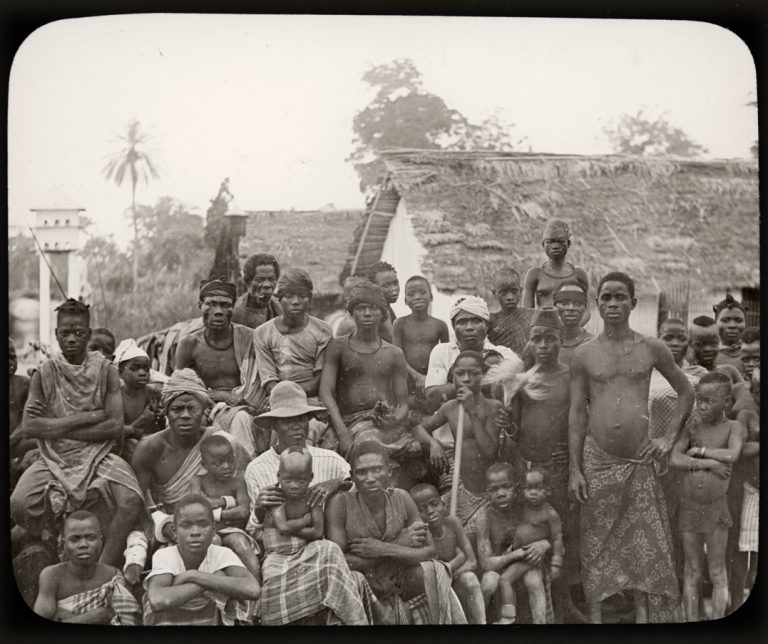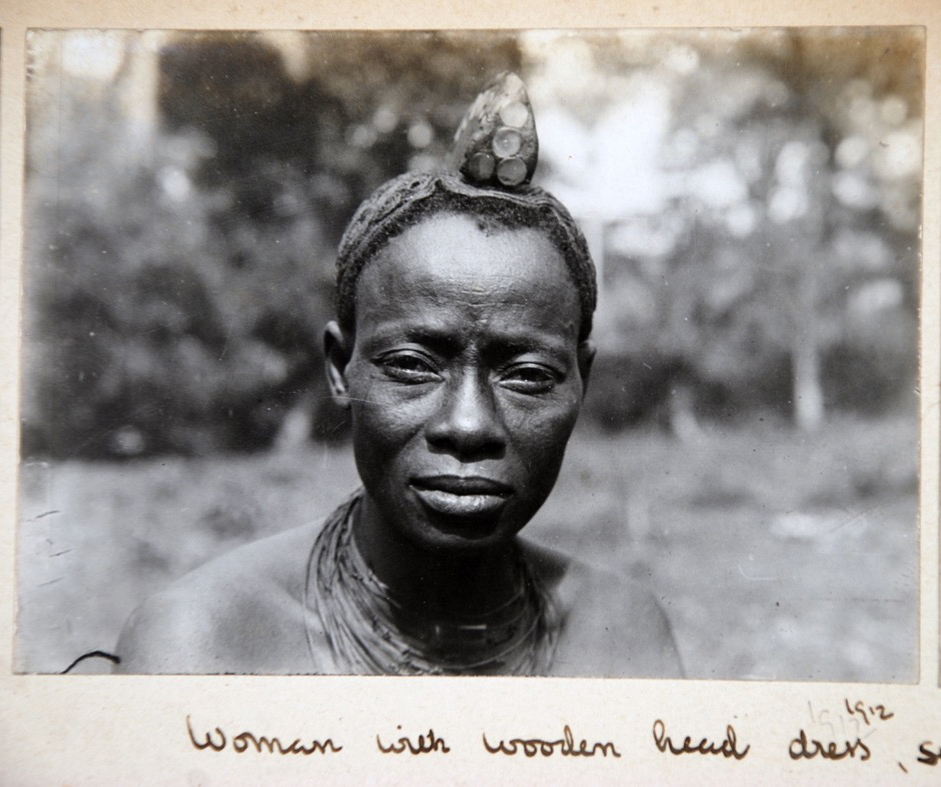
This black and white photograph from 1912 by British anthropologist Northcote Whitridge Thomas, features an Igbo elder from Öka (Awka) adorned with a distinctive wooden head dress set with pearl buttons, referred to as “isi ojongo.” This traditional attire, particularly the isi ojongo, embodies the essence of Igbo identity and artistic expression. The photograph is part of the Northcote Thomas photo album from the Museum of Archaeology and Anthropology (MAA) in Cambridge.
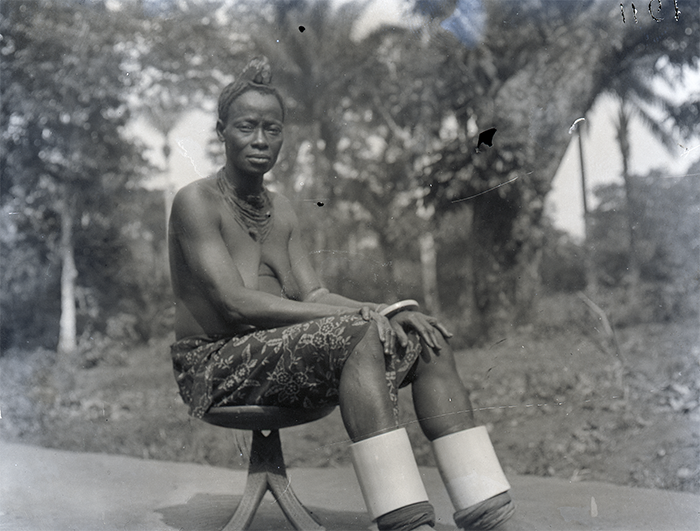
This black and white photograph from 1912 by British anthropologist Northcote Whitridge Thomas, features the same Igbo elder from Öka (Awka). The elder is wearing a patterned sarong around the waist and has two large, white bands wrapped around each leg just below the knee. These white bands, known as “mgba ụkwụ,” are traditional leg ornaments that signify purity and high status. The background shows tropical foliage, indicating a warm climate typical of the Igbo region.The elder is seated on an “oche mpata,” a stool reserved for titled individuals, particularly those with the Ọzọ title. This photograph is part of the Northcote Thomas photo album from the Museum of Archaeology and Anthropology (MAA) in Cambridge.
The traditional wooden head dress known as isi ojongo, worn by the Igbo elder in the photograph, is more than an aesthetic accessory. It signifies artistic creativity and serves as a marker of identity and status in the Igbo community. The intricate design and pearl buttons reflect both the elder’s social rank and the sophisticated craftsmanship of the period.
Similarly, the elder’s seated position on an oche mpata (a stool for titled individuals) highlights the respect accorded to those who attained the Ọzọ title. In Igbo society, Ọzọ titleholders, whether male or female, were community leaders recognized for their moral integrity and significant achievements. Women in particular who earned the title played vital roles in conflict resolution and the preservation of cultural traditions. This demonstrates the egalitarian aspect of Igbo culture, where leadership and respect transcend gender lines.
The mgba ụkwụ (leg ornaments), prominently displayed in the second photograph, symbolize purity and high status. Such cultural symbols were not merely decorative but carried deep meanings tied to societal values and identity.
Reflections on Northcote Thomas’s Work
Northcote Thomas’s photographs, like these, document a complex intersection of Igbo culture and colonial anthropology. While they provide a visual archive of Igbo traditions, they also represent a colonial gaze, often missing the voices of the subjects themselves. Recent collaborations between Igbo scholars and institutions aim to reinterpret these records, giving space to indigenous perspectives and ensuring that the rich heritage captured in these images remains respected and understood in its rightful context
Explore Further
Explore the posts below. It provides a deeper insight.
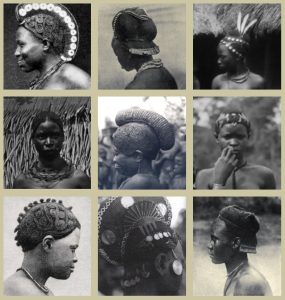 Fashion Insights
Fashion InsightsIgbo women’s hairstyles have long been a symbol of cultural identity, artistry, and social status. These hairstyles, which have evolved over centuries, are not merely about aesthetics but also about conveying deeper cultural meanings. This post explores the historical significance, materials and techniques, cultural context, and modern relevance of Igbo women’s hairstyles, showcasing their rich […]
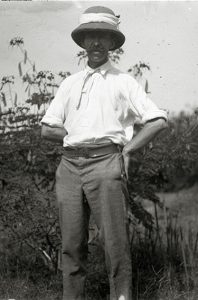 Historical Insights
Historical InsightsNorthcote Whitridge Thomas, an anthropologist appointed by the British government, embarked on a series of ethnographic expeditions in Nigeria from 1909 to 1915. His work, particularly among the Igbo people, left a lasting impact on the study of African cultures. However, his legacy is intertwined with both significant contributions and considerable controversies. Northcote Thomas’s Contributions […]
Discover more from Igbo Archives
Subscribe to get the latest posts sent to your email.
